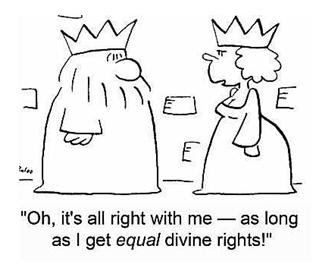
Vladimir ruler of Russes, or what is today Russia, was confused as to which countries religion to follow. He had been approached by Bulgarians, Germans, Jews, and then Greeks. Each claiming their religion to be the rightful one. Each religion was different in their own way, the Bulgarians worshiped in a temple called mosque where they would bow to different unknown Gods and practiced unique rituals, but none had the sense, peace or happiness. What was found in those Bulgarian’s faces was sadness. The Germans offered great performances, acts, and shows. Their ceremonies were rich, but they didn’t give off that fulfillment either. On the other hand, the Greeks offered something different. A religion full of splendor, where in beautiful and magical buildings you felt and saw God.
Unable to decide without knowing each religion in depth, he sent out ten wise men, as emissaries, to arrive at each country and view how they practice their faith. These emissaries were astonished with the Greek faith and its glory. They immediately returned and told Vladimir how beautiful and perfect it was. Vladimir of Kiev, decided to take his army and takeover of Kherson, a city in Greece. Vladimir warned Basil and Constantine that he wanted their unwedded sister’s hand in marriage. Basil and Constantine were taken by surprise and responded that, “they couldn’t give their sister’s hand in marriage to someone who was pagan, or someone that didn’t believe in their God or follow their faith.” The only way he could have her, and their kingdom was to accept their faith, and baptized into Christianity.
Vladimir, who at the time suffered from a disease that made him lose his sight, agreed to be baptized with Anna, Princess of Greece, he went with her priests and was baptized. She said her God, could cure any disease, and Vladimir said that if it were true, and he were cured, that would be his almighty God. Once baptized, he regained his sight, and knew at once that he had found the one true God.
Once he returned to his capital, he ordered all of the pagans (Idols) be destroyed. He had Perun, the highest Slavic God, tied to a horse’s tail, and dragged to a river where he was to be thrown in. Those that had not yet been baptized cried over those Idols being destroyed. Later, they were ordered to obey, and accept the new religion by being baptized in a river, and they knew Vladimir had accepted it because it was for a good reason. Vladimir was satisfied with having his vassals and people accept the Greek God, and offered those help, food, and treasures in his castle. Those that couldn’t manage to reach the castle for illnesses, disability or weakness, were helped as well. He had wagons full of food go throughout the towns, taking goods to individuals who were unable to reach the palace. Vladimir of Kiev died a great ruler, and firm believer in Christianity.

 Marcus raised new legions, even accepting slaves and gladiators, auctioned of furnishings from the imperials palaces to raise funds, and in 168 went with Verus to the front. Verus died in early 169, and Marcus was left to face the war alone. The barbarians were driven back, but still the war dragged on in a mixture of victories and barbarians were driven back, but still the war dragged on in a mixture of victories and defeats, with Marcus living mainly at the front, sometimes on the Danube, sometimes on the Rhine as the focus of crisis shifted. Gradually the Romans gained the upper hand, and by 175 we are told that Marcus was inteding to annex the lands of the tribes nearest the frontier when he was suddenly forced to call off the war because of the revolt of Avidius Cassius in the East.
Marcus raised new legions, even accepting slaves and gladiators, auctioned of furnishings from the imperials palaces to raise funds, and in 168 went with Verus to the front. Verus died in early 169, and Marcus was left to face the war alone. The barbarians were driven back, but still the war dragged on in a mixture of victories and barbarians were driven back, but still the war dragged on in a mixture of victories and defeats, with Marcus living mainly at the front, sometimes on the Danube, sometimes on the Rhine as the focus of crisis shifted. Gradually the Romans gained the upper hand, and by 175 we are told that Marcus was inteding to annex the lands of the tribes nearest the frontier when he was suddenly forced to call off the war because of the revolt of Avidius Cassius in the East.




























